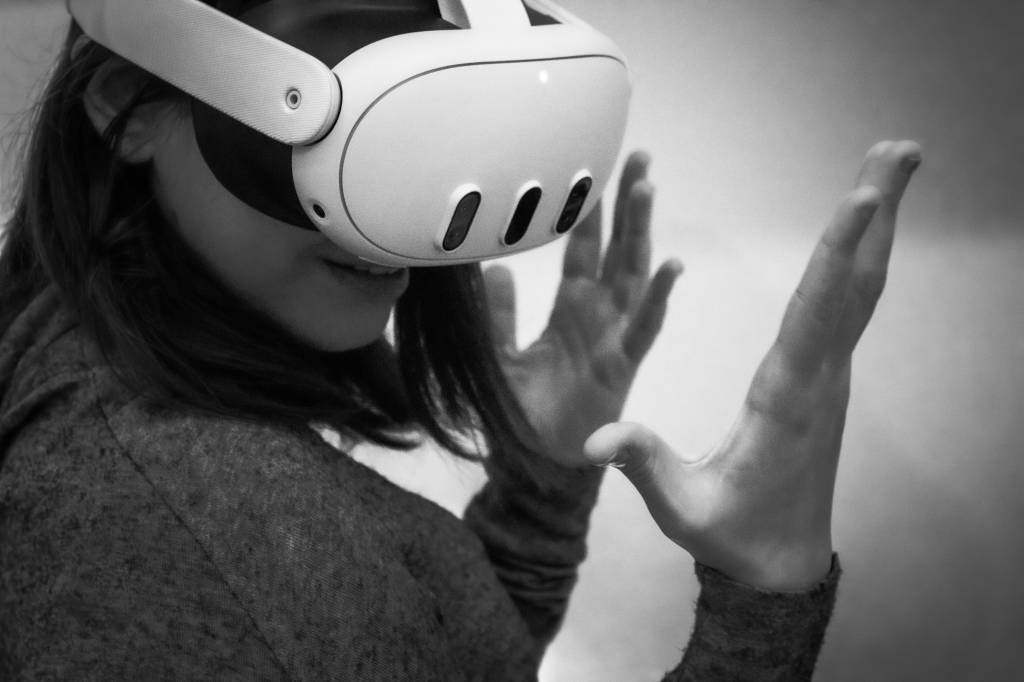The Shift from Traditional Training to Immersive Learning
Manufacturing industries have long relied on conventional training methods—classroom sessions, printed manuals, and job shadowing. While these approaches have their merits, they often fall short when it comes to preparing workers for the complexities of modern industrial environments. In today's fast-paced world, where high precision and efficiency are non-negotiable, immersive technologies like Virtual Reality (VR) are emerging as game-changers.
Virtual Reality is revolutionizing how training is conducted in the manufacturing sector. It offers a safe, controlled, and highly interactive learning environment where workers can gain hands-on experience without the risks usually associated with live machinery. More importantly, VR enables simulation of complex industrial operations, allowing for better retention and understanding of tasks. Among the key players leading this transformation is Skyreal, a company delivering cutting-edge VR solutions specifically tailored for advanced industrial applications.
Skyreal VR: Enabling Next-Level Manufacturing Training
Skyreal’s flagship product, Skyreal VR, represents a shift in how industries design, test, and train. It bridges the gap between CAD data and Unreal Engine, transforming complex engineering models into interactive VR experiences. By doing so, it enables engineers, trainees, and stakeholders to engage with product lifecycles in ways that traditional software simply cannot match.
Skyreal VR addresses a critical need in Industry 4.0: the ability to rapidly train workers on increasingly complex machinery and systems. By replicating industrial environments and workflows in VR, Skyreal empowers organizations to:
- Train multiple operators simultaneously in virtual environments
- Mitigate risks by simulating hazardous scenarios
- Reduce downtime by preparing employees before they interact with real machinery
- Accelerate onboarding processes for new recruits
Through its holistic approach to spatial engineering, Skyreal offers a managed service that ensures secure and enterprise-grade XR integration across a company’s product lifecycle.
The Benefits of VR Training in Manufacturing
Implementing VR in manufacturing training has a wide array of benefits, many of which bring immediate ROI and long-term strategic advantage. Here are some of the top benefits seen across industries:
Enhanced Safety
Safety is paramount in manufacturing, especially when dealing with heavy machinery, hazardous materials, or automated systems. VR simulations allow trainees to practice emergency response procedures, equipment operations, and troubleshooting without exposing them to real-world risks. This not only minimizes workplace incidents but also boosts trainee confidence and competence.
Improved Retention and Skill Acquisition
Studies show that learning in immersive environments can improve information retention by over 75% compared to traditional methods. VR training engages multiple senses, provides real-time feedback, and encourages repetition—all factors that contribute to better learning outcomes. Workers can revisit modules as needed, ensuring comprehensive understanding before transitioning to real-world tasks.
Cost and Time Efficiency
While setting up VR systems involves initial investment, the cost savings over time are significant. Companies can reduce expenses related to travel, instructor fees, material damage, and lost productivity. Furthermore, by training multiple trainees at once in virtual settings, organizations can expedite the learning curve and reduce time-to-competency dramatically.
Standardized Training Across Locations
For multinational manufacturers, standardizing training across different regions can be a logistical nightmare. VR eliminates this issue by offering a consistent, replicable training experience that transcends geographical boundaries. Updates to training modules can also be deployed seamlessly across the platform.
Real-World Use Cases Enabled by Skyreal
Skyreal’s VR technology has been successfully applied in scenarios ranging from assembly line optimization to equipment testing and collaborative design strategies. Here are a few concrete examples:
- Automotive Manufacturing: Engineers and assembly personnel can explore entire vehicle builds in VR, identify parts collisions, test ergonomics, and plan assembly sequences.
- Aerospace Engineering: Complex systems such as cockpit layouts and turbine integration can be examined in 1:1 scale, enabling real-time collaboration across teams worldwide.
- Industrial Maintenance: Technicians learn to identify component failures and execute repair procedures virtually before accessing actual machinery.
Switching from CAD data to VR simulations is seamlessly facilitated through Skyreal’s integration capabilities, allowing companies to maintain their design pipelines while significantly enriching their training protocols.
When CAD Meets VR: Skyreal’s Competitive Edge
Unlike general-purpose VR platforms, Skyreal is specifically crafted for industrial users. Its powerful plugin converts CAD models into interactive VR experiences within Unreal Engine without compromising on detail or accuracy. This direct bridge between design and simulation transforms traditional production models by facilitating rapid prototyping, error detection, and efficient design reviews.
Furthermore, Skyreal VR enhances collaboration by allowing multiple users to participate in the same virtual space. Stakeholders across design, production, and maintenance departments can engage in immersive workshops regardless of location—ushering in a new era for remote work and decentralized production models.
If you want to dig deeper into how VR is impacting industrial processes, check out this article on vr manufacturing.
Overcoming Challenges to VR Adoption
As promising as VR training sounds, adoption is not without its challenges. Initial hardware costs, resistance from traditional management teams, and technical integration issues can pose barriers. However, these obstacles are rapidly diminishing due to:
- Declining hardware costs and increased accessibility of high-performance VR headsets
- User-friendly software solutions, such as Skyreal VR, that require minimal training
- Comprehensive support and managed services offered by companies like Skyreal
In addition, as younger, tech-savvy workers enter the workforce, demand for digital-first training solutions continues to grow. These employees expect rich, interactive learning experiences and are more inclined to embrace VR as a core element of their professional development.
The Future of Manufacturing Training Is Virtual
We're entering an era where the fusion of digital and physical realities promises to revolutionize not just design and prototyping, but the very fabric of workforce education. The manufacturing sector, with its intricate systems and processes, stands to benefit enormously from this shift.
Skyreal is at the forefront of this transformation, offering industrial players the tools they need to scale, innovate, and train smarter. As the lines between engineering, training, and real-world applications continue to blur, companies that embrace VR today will undoubtedly emerge as tomorrow's industry leaders.
From improved safety and cost savings to enriched collaboration and faster onboarding, the advantages of VR training are clear. With technologies like Skyreal VR paving the way, the manufacturing industry can look forward to a smarter, more efficient, and human-centric future.

